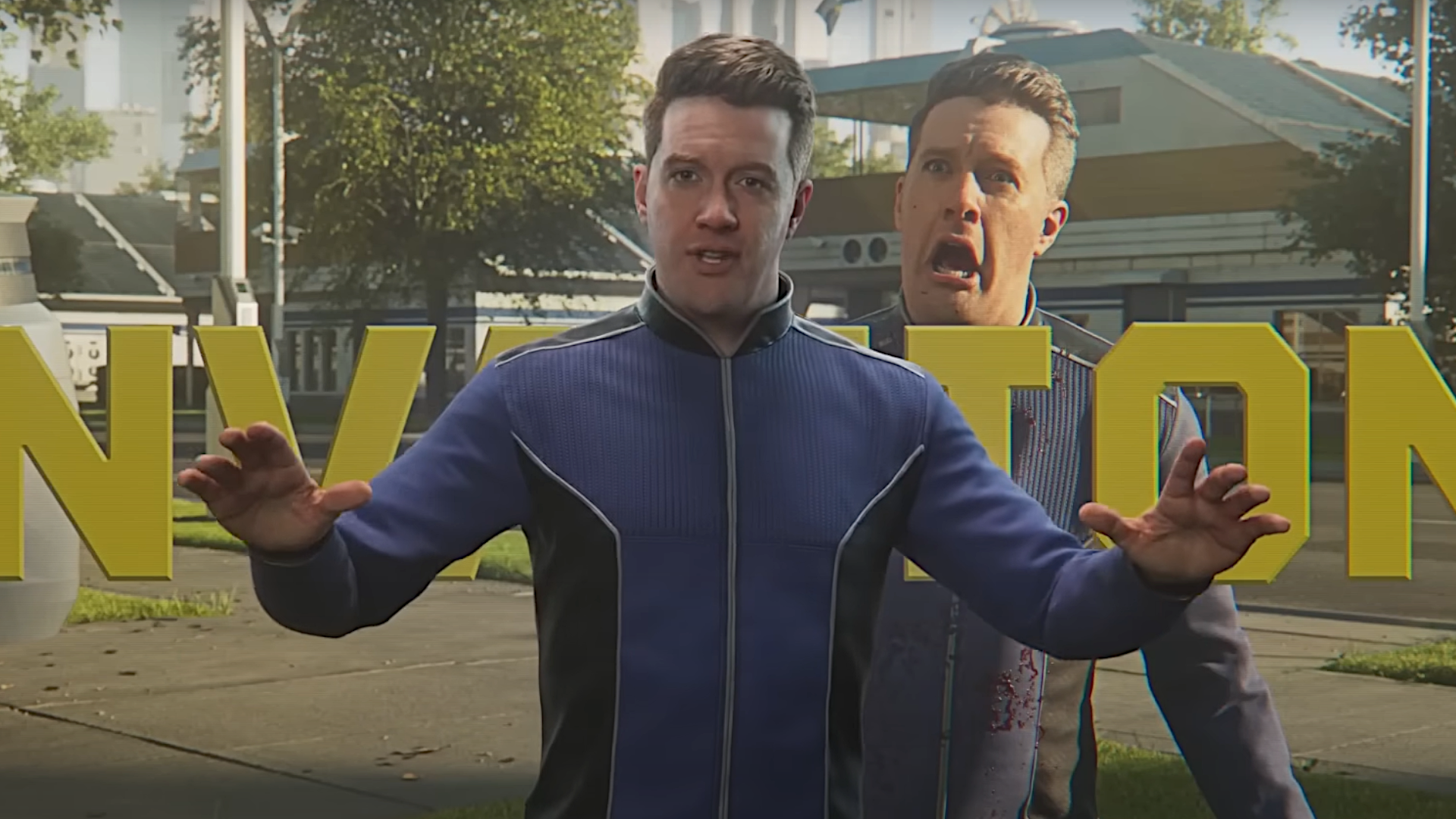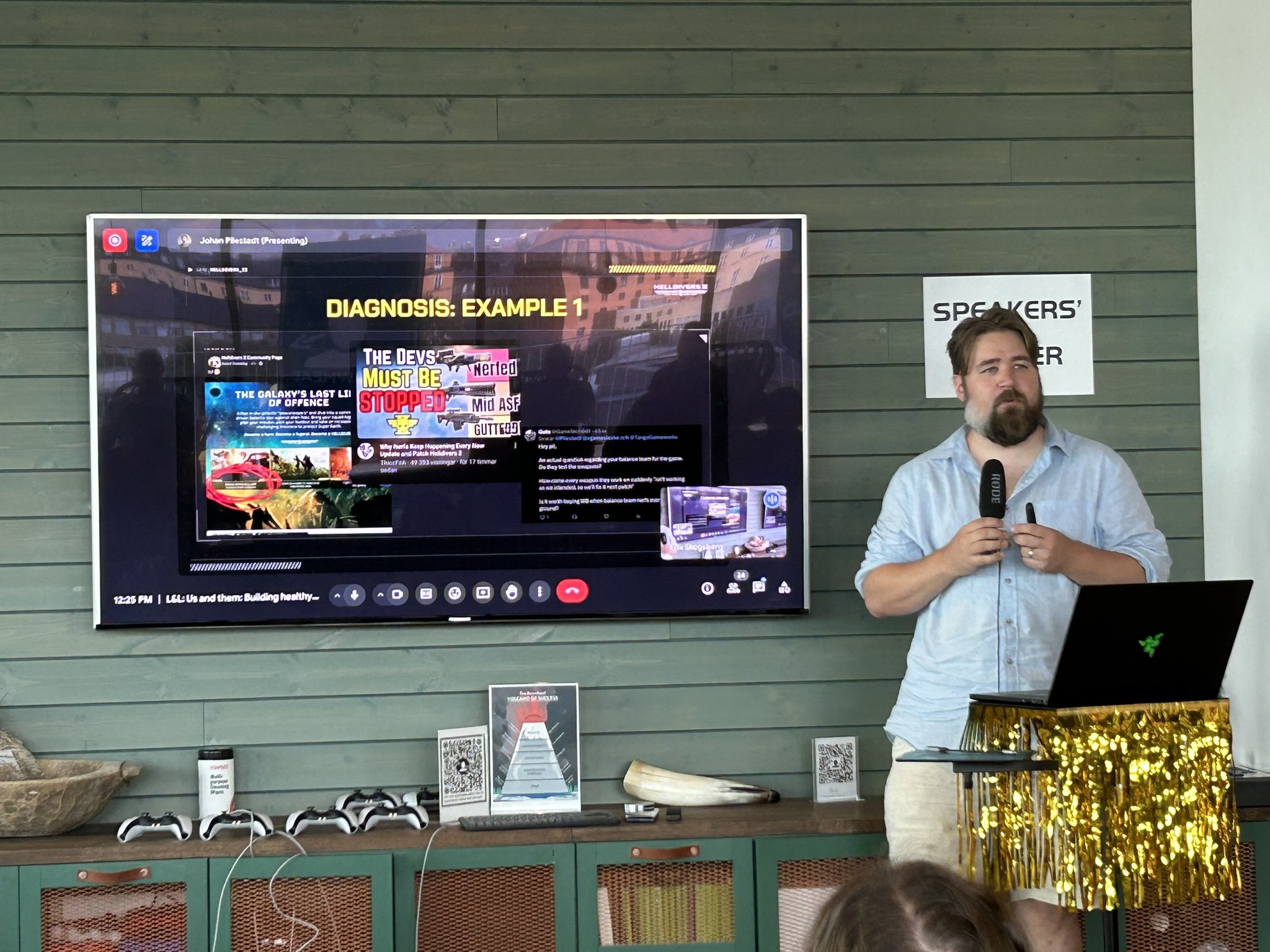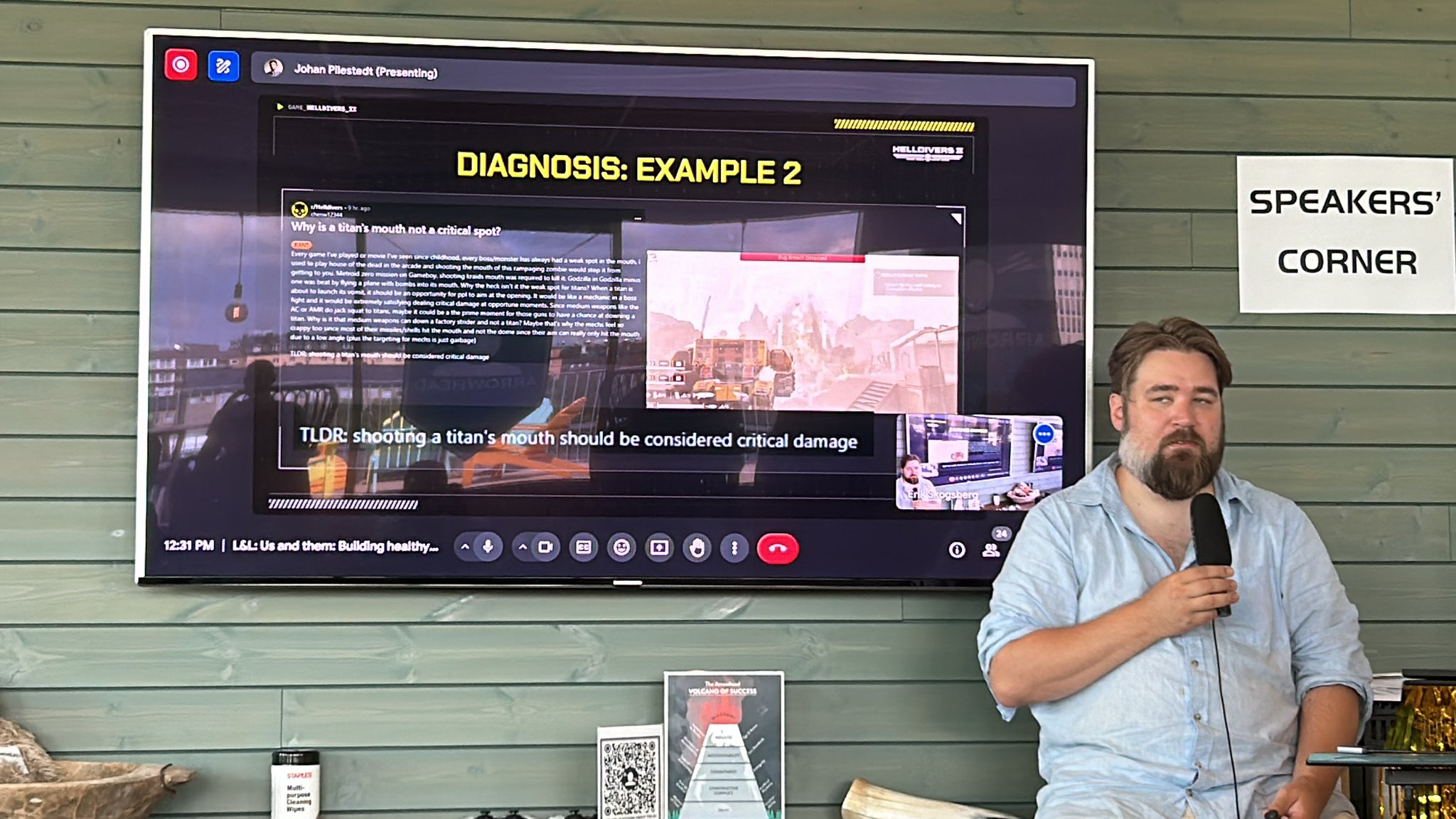
Helldivers 2 has simmered down considerably after the stratospheric success of its launch—which started at an all-time peak of over 450,000 players and has since nestled into a cosy 24-hour peak of around 40,000 at the time of writing.
That's still pretty healthy numbers for a live-service game (and I don't think anyone expected Helldivers 2 to stay at 400,000 concurrents forever—those kinds of numbers are usually reserved for big MMORPGs, MOBAs, and the most popular shooters) but there have been some PSN, balance, and bug-related dramas that have certainly contributed to a dip in player count. This has all led to a more long-term strategy—because yeah, Arrowhead Games probably does need to slow down a bit.
As part of these changes, former CEO Johan Pilestedt elected to become the game's CCO instead in order to direct '100% of my focus [to] the game and community'. Replacing him is Shams Jorjani, who took to Twitter yesterday to share some snapshots from the studio's new workshops that confirm yes, the team is reading your Reddit threads.
"I asked Pilestedt to host the first of a series of [workshops] at the [Arrowhead Games] office on the topic of 'Us and Them: building healthy relationships with our players and partners'," explains Jorjani, wherein the team tries "to unpack learnings since launch."


"A big takeaway," Jorjani writes, "is that we as developers and players have a bit of a doctor/patient relationship. A patient comes in with knee pain thinking it's due to a particular 'thing'. We as doctors know it's not that 'thing'. The patient is wrong, but they are also STILL in pain."
I get what Jorjani's saying. When it's a small dedicated group of R&D specialists seeking something out, the Helldivers 2 community has identified issues with laser precision, such as solo mission patrol spawn times being busted. But they have also been completely wrong when the word-of-mouth machine picks up on the wrong cues, such as with certain ricochet changes.
In other words—small groups of people who play games can occasionally turn up some really good QA work but, taken as a whole, gaming communities are better at identifying that an issue exists, rather than identifying why it exists, or what reasonable solutions are. To borrow a phrase from 1997's Men in Black: "A person is smart, people are dumb, panicky, dangerous animals and you know it."
The two slides in question show Pilestedt stood in front of suitably-named 'diagnostic' explainers, which feature a mixture of tweets, YouTube videos and yes, Reddit threads such as this one posted a day ago. The slide in question highlights "TL:DR: shooting a titan's mouth should be considered critical damage" as a pertinent takeaway. Now, considering Jorjani's words (and a lack of access to the full presentation) it's uncertain whether Arrowhead actually agrees with this assessment, but it's at least using community sentiment to inform its opinions.
Jorjani adds that, in the past, "our initial reaction might be to strawman/defend our decisions," whereas the team could instead be "strong-manning" to inspire future works. In case you're unfamiliar with the team, strong-manning (or steelmanning) is a rhetorical device by which you create the strongest form of an opponent's argument rather than try to pick it apart, then address said argument's claims. The idea being that you'll come out of that exchange with stronger arguments yourself.
It's definitely a delicate balance to walk. Yes, community feedback can absolutely be a useful thing in a developer's toolkit—but I don't know if I've ever believed that the customer is always right, especially when said customer is a non-Euclidean swarm of opinionated and anonymous internet strangers that are, often, disproportionately loud (people who are enjoying a game don't take to forums, after all). Down that route lies madness.
On the other hand, having obvious and reasonable complaints and being met with a stone wall is annoying, too. It's just rocks and hard places no matter where you look, though it'll be interesting to see how Arrowhead Games tackles the challenge.







